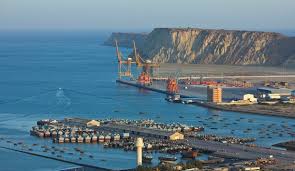Balochistan government has imposed a ban on the transfer of land in Gwadar; Planning Ministry and Gwadar Development Authority (GDA) along with an international firm will jointly devise a plan to make Gwadar a planned city.
This was told by Secretary Ministry of Planning, Development and Reform Yousaf Naseem Khokar to the National Assembly Standing Committee on Planning, Development and Reform which met here on Tuesday under the Chairmanship of MNA Abdul Majeed Khan Khanankhail.
The secretary said the ban of transfer of land in Gwadar will be effective for three months and a notification to this effect has been issued by the provincial government.
“This ban on new schemes has been imposed to make Gwadar a planned port city for business and other activities,” the secretary said. He added that services of an international firm will be hired to devise a plan for making Gwadar a city that will carry international standards.
The city of Gwadar is a hub of connectivity for the corridor and an indispensable interchange for the Silk Route. The China-Pakistan Economic Corridor, however, plans not to limit Gwadar to a connecting port only but enriches it as an economic hub that will cater to the needs of the local population by improving their livelihoods.
Projects planned for Gwadar port city aim at capacitating Balochistan to its full economic, social, technical, and energy potential, and closely integrating it within the economic framework of Pakistan and China. However, land use in the port city has not shown the rosy picture. But, it has been creating problems to make Gwadar a planned port city. A large part of the land of Gwadar city has been allotted under various schemes.
The land use by Gwadar Development Authority (GDA) till December 2016 discloses that GDA has issued 100 No Objection Certificates (NOCs) to various residential, industrial, commercial and recreational schemes.
Among them, there are 75 housing/residential schemes in Gwadar that cover 12677.604 acres of land, while 15 industrial schemes cover 2174.87 acres, commercial schemes are six and they cover 299.84 acres. Also, recreational schemes are four and they have covered 381 acres.
During the course of this meeting, the secretary comprehensively briefed the committee over the updated status of the CPEC projects post 6th Joint Committee on CPEC (JCC) meeting held on December 29, 2016, at Beijing co-chaired by professor Ahsan Iqbal Minister for PD & R and Wang Xiaota, Vice Chairman National Development Reform Commission (NDRC).
“This meeting was unique as all chief ministers of Provinces attended the meeting and presented new project proposals and preferred sites for special economic zones,” Yousaf Naseem Khokar said.
Sharing details of projects under the CPEC, Secretary Planning informed that there are 12 energy projects under the CPEC which is expected that 5000 MW of CPEC energy will be put into operation by 2017-18. The committee directed secretary Planning Ministry to submit project wise details along with breakup in the next meeting. The Committee also recommended that all concern departments would be invited in the next meeting to brief the Committee over the said energy projects under CPEC in detail.
The secretary also briefed the committee over the Transport Infrastructure, Rail Based Mass Transit System, Railways, new Provincial Projects and new Gwadar Projects in detail.
Rail Based Mass Transit System includes Karachi Circular Railway, Greater Peshawar region Mass Transit, Quetta Mass Transit and Orange Line, Lahore, however, he informed that the Orange Line Lahore is not part of the CPEC it is a Punjab government project.
MNAs, Syed Muhammad Athar Hussain Shah Gillani, Shaza Fatima Khawaja, Asma Mamdot, Shaheen Shafiq, Shamas-un-Nisa, Nafisa Shah, Ehsan-ur-Rehman Mazari, Qaiser Jamal, Sheikh Salahuddin, Asiya Nasir, Sher Akber Khan and Iftikhar-ud-Din attended the meeting, besides officials of M/o Planning, Development and & Reform and M/o Water and Power.




